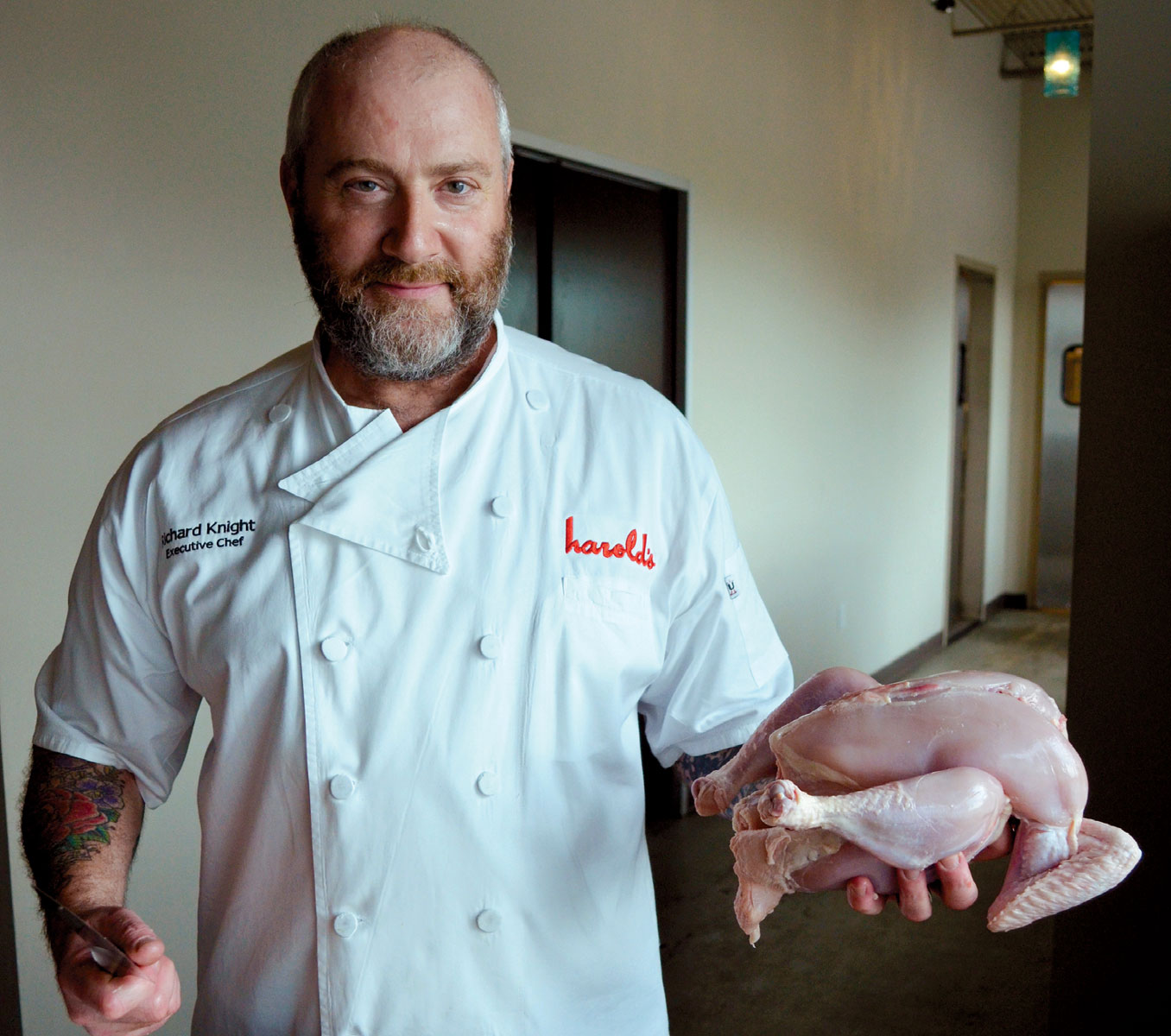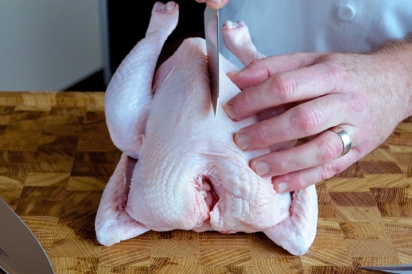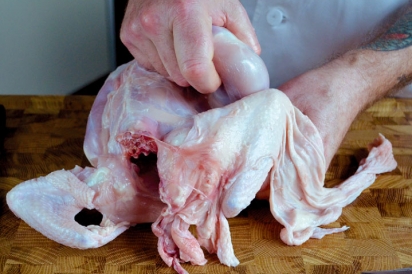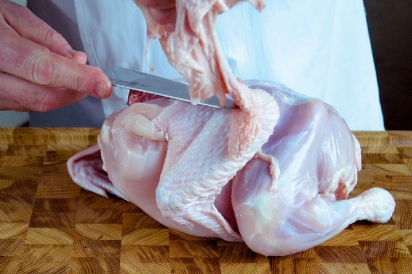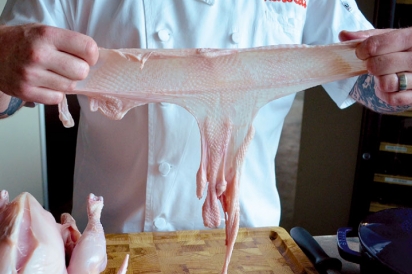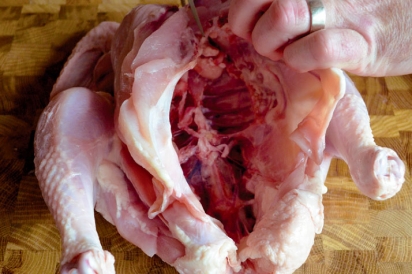Knife Skills: Learn how Chef Knight Takes The Skin off a Chicken
Let’s be serious. How you care for your knife is indicative of how you run your kitchen and your life. Your knife is the instrument that aids in feeding your family and entertaining your friends. I strongly recommend treating it with respect, and you won’t get hurt.
You don’t need an online dating site to meet the knife of your dreams, just confide in your local retailer. There’s a knife for boning, for filleting, for turning, for EVERYTHING. Let them guide you.
After escorting your knife home, where do you keep it? Proudly displayed on the counter in a block or sheathed in a drawer? How will you wash it? (By hand, duh.) What will you do when it gets dull? Well, you have two options: Purchase a whetstone, watch endless YouTube videos and attempt to sharpen it yourself, or you can take them to a professional knife grinder. Either way, do it and do it regularly. Sharp knives require less pressure. Less pressure means a swifter response if you slip (i.e., less blood). In between sharpenings, honing your blade with a steel will realign the edge, which with daily use will incur microscopic dents, making it feel dull.
Lastly, your knife needs a cutting board, a stable one heavy enough that it doesn’t move, or one with rubber grips. Placing a damp paper towel under your board will also keep it still. Be sure to give your knife the space it needs—meaning clean your board as you go. It’s also a good idea to use a separate designated board when working with animal proteins. Nobody likes food-borne bacteria.
Your knife is your kitchen companion. Together you will do great things.
Brought to you by Bering’s, a Houston tradition since 1940! This one-of-a-kind treasure house offers an array of quality hardware items for the kitchen including Zwilling, Staub, Heinkles and more. Do your knives need sharpening? Bering’s offers knife sharpening services at both locations in Houston: 6102 Westheimer and 3900 Bissonet.


